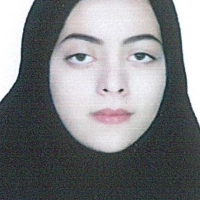The Position and Function of Recitation Variants in Khosrowi's Interpretation
Author(s):
Article Type:
Research/Original Article (دارای رتبه معتبر)
Abstract:
The science of recitation stands as one of the crucial foundations in interpreting the Noble Quran, playing a vital role in elucidating and comprehending the intentions of the Divine. Contemporary Shiite exegetes, considering Ayatollah Ma’refat's theory, regard the recitation of Hafs from Asim as congruent with the recitation of the masses that has been orally transmitted through generations. Consequently, most contemporary exegetes have confined themselves solely to the prevalent recitation. However, a few interpretations have not adhered strictly to the widely known recitation and seem to reject the theory of conformity between Hafs from Asim's recitation and the generally transmitted recitation since the advent of Islam. Hence, these interpretations prefer non-prevalent recitations in certain instances. Among these interpretations, Khosrowi's interpretation stands out. This present study employs a descriptive-analytical method to investigate this matter within Khosrowi's interpretation. The research findings indicate that the place of recitations in Khosrowi's interpretation, regarding frequency, origins, sources, and the functional aspects of recitations concerning expansion, clarification, and resolution of ambiguity in the meaning of verses, is subject to evaluation
Keywords:
Language:
Persian
Published:
Bi-Quarterly Scientific PropagationalStudies of Quran Reading, Volume:11 Issue: 21, 2024
Pages:
9 to 34
https://www.magiran.com/p2696737
سامانه نویسندگان
مقالات دیگری از این نویسنده (گان)
-
Analyzing the approach of Ibn-Abbas regarding the permissibility or impermissibility of interpreting the Qur'an and its semantic function in his exegetical traditions
Elham Zarinkolah, *
Tahqiqat-e Ulum-e Qur´an wa Hadith, -
Comparative and analytical Study of "Ḥubb" in Traditions of al-Kāfī and Bukhārī's al-Saḥīḥ, by Content Analysis Method
Zahra Ghasemnezhad *,
Hadith Studies,



